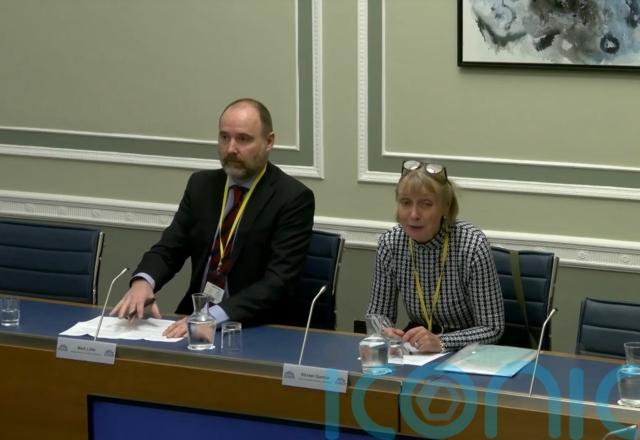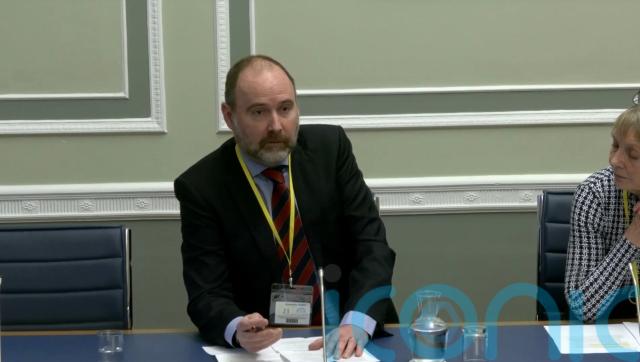
Deep concern has been voiced ahead of the ending of the grace period for post-Brexit rules over regulations for veterinary medicines to Northern Ireland in a few weeks’ time.
The temporary grace period for the distribution of veterinary medicines from Great Britain into Northern Ireland has been running since January 2021.
However January 1 2026 will see the full implementation of EU rules on veterinary medicines coming into Northern Ireland.

It follows post-Brexit agreements which see the region being effectively treated as part of the EU in terms of trade rules, despite remaining part of the UK which left the EU.
Stormont’s Agriculture, Environment and Rural Affairs Committee on Thursday heard of concern among vets over uncertainty around which products may no longer be able to be brought into Northern Ireland.
North of Ireland Veterinary Association (NIVA) secretary and past president Mark Little said from January 1, GB authorised medicines can no longer be supplied into Northern Ireland, unless they meet EU regulatory requirements.
Yet he told MLAs that they are approaching this with “almost incomplete information”, describing “blinkers being on”.
He said so far three of the pharmaceutical companies have said what they are going to do, with one saying they will continue to supply as normal, while the other two have provided lists of products to be discontinued or supplied in different sizes.
“That amounts to between 30 to 40% of their stock keeping units being withdrawn,” he said.
“These early signals already exceed the UK Government’s modelling and their research which assumes that only a small amount of products will be affected.
“The other companies, we just don’t know… as vets who are on the ground, we’re sitting here at the end of November, we still don’t know what is going to happen.
“The UK Government has been working hard and have created two schemes to try to continue to supply of veterinary medicines…. But we (are) worried these schemes may not be workable in practice, and also place significant liability on vets to use them.”
He said the situation is currently stable, but they are worried about a gradual deterioration throughout 2026, as well as rising costs, reduced choice of first line medicines, reduced pack sizes and increased pressure.
“If you’ve reduced choice and different pack sizes, you may have to get more medicine than you need, or smaller pack sizes increase pressure on antimicrobial resistance or anti-parasite resistance,” he said.
“In summary we’re approaching this major regulatory change very, very soon with almost incomplete information.
“The blinkers are still on for vets on the ground, communication and guidance has been limited as well, and growing evidence that maybe the scale of discontinuation is greater than the Veterinary Medicine Directorate is telling us.
“The next 12 months will be significant risk and uncertainly to animal health, to farming, to pet owners because of the supply of veterinary medicines to Northern Ireland.
NIVA president Kirsten Dunbar said there is a lot of uncertainty, and concern around confidence, costs and communication.

She gave an example of a product that treats lice in horses which will be discontinued, saying it will leave nothing specific for lice for use in horses.
She also called for more user-friendly guidance.
“There is nothing clear and practical for vets on the frontline, and there has been no direct communication with veterinary surgeons or farmers or pet owners from Defra or the Veterinary Medicines Directorate (VMD),” she said.
“There are long-promised webinars, which we are awaiting. We’re told they’re imminent.”
She said NIVA would recommend issuing Northern Ireland specific plain language operational guidance for vets, farmers, horse owners and pet owners as soon as possible to allow for preparation.
Responding, a government spokesperson said: “We have launched two schemes to ensure the continued supply of veterinary medicines from Great Britain into Northern Ireland following the end of the grace period.
“We continue to engage with industry and remain confident that there will be limited disruption at the end of the year.”
Subscribe or register today to discover more from DonegalLive.ie
Buy the e-paper of the Donegal Democrat, Donegal People's Press, Donegal Post and Inish Times here for instant access to Donegal's premier news titles.
Keep up with the latest news from Donegal with our daily newsletter featuring the most important stories of the day delivered to your inbox every evening at 5pm.